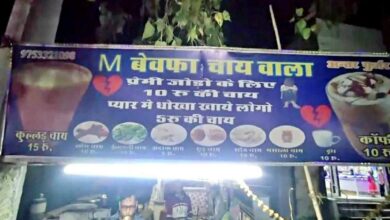Food Security Vs Farmer’s Interest

When the central government banned the export of wheat, the eternal debate of food security versus farmer’s interest broke out again. The decision to ban exports is a good decision to ensure the food security of the country, but is this decision going to harm the farmers? The Congress party opposed the decision saying that the farmers were getting the benefit of increasing exports but this was not seen from this government. Congress and some other agriculture experts say that due to increase in exports, private traders were buying wheat at a price higher than the minimum support price and farmers were benefiting from it. On the other hand, on behalf of the government, Union Minister Hardeep Singh Puri has tweeted that India has a stock of wheat, but to ensure India’s food security and availability of cheap food grains, and to deal with market speculation, the government has banned exports. decided to. Many agricultural experts are supporting this argument of the government.
Then the question is, are the country’s food security and farmers’ interests necessarily at odds with each other? Is it because of the policy of providing cheap food grains to the citizens of the country, the farmers are not able to get a fair price for their produce? Can’t the government ensure food security while ensuring the interest of farmers? The answer to these questions is not very simple. If we look at only the immediate matter, then it can be said that the government has taken a good decision to stop exports for food security. But if the government wants, it can compensate the farmers for their loss by paying a higher price above the fixed price of their produce. For example, if the government is buying wheat at the rate of Rs 2,015 per quintal, then declare a fixed bonus per quintal, which will also protect the interest of farmers.
Keep in mind that private traders are not buying the grains of farmers in the mandis by paying any one hundred or two hundred rupees more than the MSP. Private traders are paying more by Rs 5 to 15 per quintal. In such a situation, if the government gives a bonus of two hundred rupees per quintal, then the farmers will get a big benefit. The government has just taken such a decision. In order to give relief to the farmers, the Central Government has approved the purchase of wheat that has shrunk by 18 percent in Haryana.
Keep in mind that due to the sudden increase in heat in March-April, wheat grains shrank by 15 to 20 percent in both Punjab and Haryana. Farmers were getting upset due to non-procurement of these. Despite the poor quality, if the government procures wheat and announces a bonus per quintal to compensate for the damage caused to the crop due to heat, only then the interests of the farmers will be protected.
If the government does not do this, it will mean that it is paying more attention to the food security policy necessary for vote politics and ignoring the farmers. Keep in mind that at present, under the Pradhan Mantri Garib Kalyan Anna Yojana, the government is giving five kg of food grains and one kg of pulses free of cost to more than 80 crore people of the country. The scheme has been extended till September and it is not difficult to guess that it has to be continued till the 2024 Lok Sabha elections. For that it is necessary that the government grain godowns should be filled. The first reason for banning exports is because the government needs enough wheat for the free grain scheme. With the yield falling below the estimated 110 million tonnes and a 44 per cent fall in government procurement, it was necessary for the government to stop exports. Otherwise, the price of wheat and flour was rising wildly in the retail market and the government was worrying about the availability of food grains to be distributed free of cost. So, he hurriedly stopped the exports. It is a good thing that the government should continue with its grain scheme, but at the same time, measures should definitely be taken to compensate for the loss caused to the farmers.
That can be done in two ways. Firstly, the government should compensate the farmers for the loss. Fix bonus per quintal on their produce. Another way is that under the Pradhan Mantri Garib Kalyan Anna Yojana, instead of food grains, the government should provide cash. Under the public distribution system, people can buy food items of their choice if the government gives money in lieu of the grain given above the cheap food grains that have been available earlier. Keep in mind that due to low production of wheat, its inflation has increased, but there are many other grains, whose price has not increased. With that money people can buy other cereals, pulses, milk, eggs etc. This will reduce the pressure on wheat and rice. Then there will be no need to ban exports. Farmers will be able to sell food grains in the open market at a higher price than the MSP.
However, in whatever way, the government has to strike a balance between food security and farmer’s interest. Stopping exports directly is not a solution. Such decisions raise serious questions about the policies and thinking of the government. Think, on April 11, Prime Minister Narendra Modi said during a conversation with US President Joe Biden that if the World Trade Organisation, WTO approves, India can start exporting from tomorrow to feed the world. He also reiterated the thing that fed the world during his three-day trip to Europe in the first week of May. But suddenly on May 13, his government banned the export of wheat. That too at a time when Russia, the largest exporter of wheat, is embroiled in a war and Ukraine is also unable to export. Such a decision shows the seriousness of the government. Agriculture ministers of the G-7 countries have also criticized the government for this and said that if all the countries decide to stop exports in the same way, then the already ongoing crisis will deepen.
So, instead of stopping exports, the government could have fixed a minimum export price of wheat. More such measures could have been thought of, which would not harm India at the international level and harmonize at the domestic level as well. If there is a similar approach in the policies, then from the coming season private traders will not buy the crop by paying more price to the farmers above the MSP. They will take precautions, the loss of which will be borne by the farmers. This situation can happen in case of every crop because climate change is worsening the weather patterns and everyone knows that agriculture in India is dependent on monsoon. Hence crop failure can occur in any season. So will the government make export policy according to every season? So, it should be ensured that there should be a definite export policy in the country, there should be a definite policy of food security and there should also be a definite policy to protect the interests of the farmers and these three should be in harmony.






